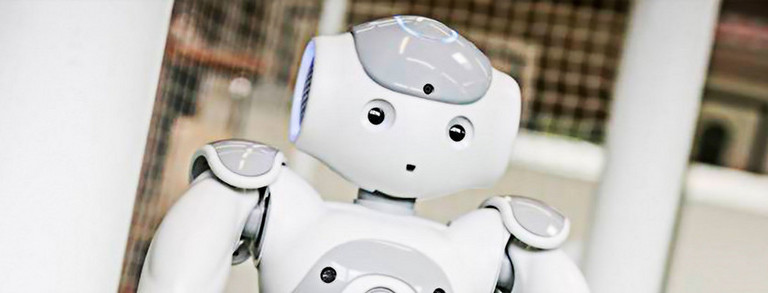Strengthening NRW-USA Cooperation in Quantum Research
- Top News
- Higher Education Policy

High-performance computers for the rapid processing of large amounts of data, highly sensitive sensors, or new encryption methods – quantum technologies are expected to help provide new answers to major questions and challenges of our time. More than a dozen research institutions in NRW, together with industry representatives, launched the “EIN Quantum NRW” network in 2022 to share the latest findings, initiate innovative projects, and train specialists for this future field.
At the Lawrence Berkeley National Laboratory of UC Berkeley, scientists are also working on the development of hardware and software for quantum computing and researching materials, algorithms, and applications of these new technologies. In a joint declaration of intent, TU Dortmund University and UC Berkeley have agreed to consider cooperation in research projects and the organization of joint conferences, workshops, and seminars in the field of quantum research. Additionally, both universities aim to explore ways to enable mutual guest stays – for professors, postdocs, doctoral candidates, and master’s students.
Basic Research in Dortmund
“The applicability of quantum technologies is still in its infancy,” explains Manfred Bayer, President of TU Dortmund University and scientific spokesperson of the EIN Quantum NRW competence network. “The foundations come from universities – we contribute to deepening the understanding of quantum effects and discovering new phenomena that are relevant for developments in quantum computing, quantum communication, and other applications.” For example, physicists at TU Dortmund University have been researching the fundamentals of quantum optics since 2014 in the DFG Collaborative Research Center 142 “Tailored Nonlinear Photonics: From Fundamental Concepts to Functional Structures” together with the University of Paderborn. The scientists specifically manipulate photons – small light particles that make up electromagnetic radiation. The goal of the physicists is to drive the research activities of the Collaborative Research Center from the fundamentals of light and material physics to applications, for example, in information and communication technology.
For the research and transfer of quantum technologies, scientists at TU Dortmund University are also involved in two current projects of the European network “QuantERA,” which is funded by the EU, the German Research Foundation (DFG), the Federal Ministry of Education and Research (BMBF) and the “VDI Technologiezentum GmbH” of the Association of German Engineers. In the project “MEEDGARD,” led by Dr. Doris Reiter from the Department of Physics, partners from Germany, Austria, the United Kingdom, and Poland are researching how information can be stored in the nuclear spin of atoms in a quantum dot, a nanoscale semiconductor structure. The project “QuCABOoSE,” in which Prof. Marc Aßmann from the Department of Physics is involved along with partners from Germany, Poland, Italy, and the Czech Republic, is dedicated to the question of how an environment can be tailored for technological application so that it does not impair the fragile quantum states and can even take on useful functions.
Scientific Exchange in the USA
To further expand the basic research of quantum effects and technological transfer, TU Dortmund University and the EIN Quantum NRW network aim to collaborate more closely with American partners in the future.
Manfred Bayer says: “I am sure that deepening scientific relations with colleagues in Berkeley can benefit both sides, as progress in knowledge thrives on international exchange.” The broad-based top research on quantum computing in Berkeley offers numerous points of contact for scientific cooperation. The Memorandum of Understanding was signed by Manfred Bayer together with Prof. Lisa Alvarez-Cohen, Vice Provost for Academic Planning and Senior International Officer at UC Berkeley, in the presence of NRW Science Minister Ina Brandes during a visit to the California campus.

As part of the NRW-USA Year, which the state government is using to honor the approximately 340-year relationship with the United States, the NRW Science Minister visited various laboratories, universities, and companies in Chicago and San Francisco in July, along with representatives from universities, research institutions, and companies. As the scientific spokesperson of the EIN Quantum NRW network and President of TU Dortmund University, Manfred Bayer participated in the delegation trip and exchanged views with American scientists and experts. The main topics of the trip were quantum technology, battery research, and strategic partnerships for future technologies.





![[Translate to English:] Partner Four hands are holding the green logo of TU Dortmund University](/storages/tu_website/_processed_/1/d/csm_Partner_Nicole_Rechmann_KW_670eba0154.jpg)




![[Translate to English:] Forschung An apparatus with tubes in a laboratory](/storages/tu_website/_processed_/0/c/csm_Forschung_Juergen_Huhn_4fa3153b51.jpg)
![[Translate to English:] Studium Five students are sitting in a lecture hall. They are talking to each other.](/storages/tu_website/_processed_/c/9/csm_Studium_FelixSchmale_dbdbfb0dd7.jpg)







